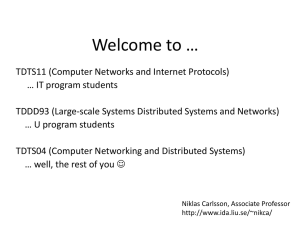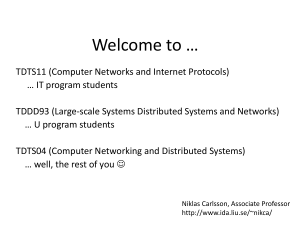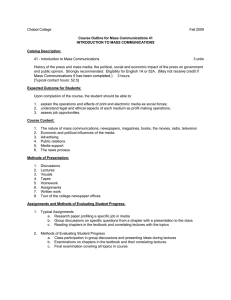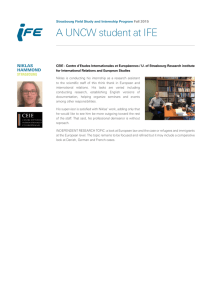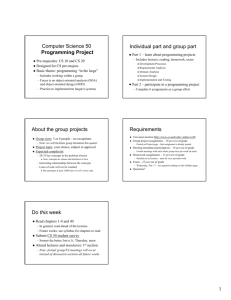Computer Networks Welcome to TDTS06 Instructor: Niklas Carlsson Email:
advertisement
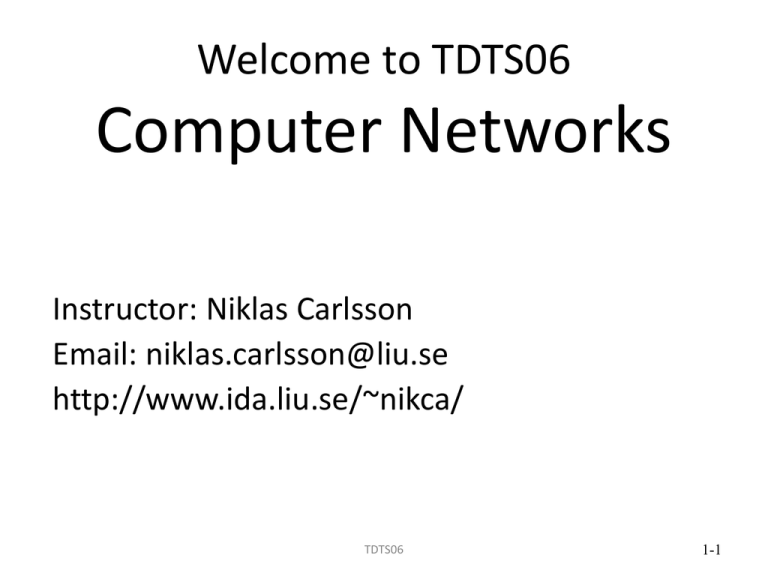
Welcome to TDTS06 Computer Networks Instructor: Niklas Carlsson Email: niklas.carlsson@liu.se http://www.ida.liu.se/~nikca/ TDTS06 1-1 People • Examiner and lecturer – Niklas Carlsson, Associate Professor – Research area: Design, modeling, and performance evaluation of distributed systems and networks • Lab assistants – Johannes Schmidt, Postdoc – Simon Sörman, Senior undergraduate – Vengatanathan Krishnamoorthi, PhD student • Course Secretary – Madeleine Häger Dahlqvist • Director of studies – Patrick Lambrix TDTS06 1-2 Course Overview • Written exam – Grads: ‘fail’, 3, 4, 5. • Four (4) mandatory lab assignments – Must pass all four labs – Eight lab opportunities – Please register on webreg right away!! (deadline on Friday) • One (1) optional assignment – Up to 4 bonus marks for exam • Twelve (12) lectures + one (1) exam prep. • See website for more information ... TDTS06 1-3 My expectations • Read textbook – Very good textbook, written by highly regarded researchers in the field – Lots of content – Not time to cover everything during lectures • Work hard – Pay attention during lectures – Make sure you understand the material – Start assignments early (some will take time) • Follow deadlines and office hours TDTS06 1-4 What to expect? (What will be covered?) • Design principles for computer networks – Conceptual view of Internet architecture • Design, resource, and performance tradeoffs – General working knowledge of protocols/applications – Detailed knowledge of selected protocols/applications – Some practical hands on experience • Glimpse into the future of the Internet – Emerging trends and technologies TDTS06 1-5 Kick starting science ... What do you have in the future? What do you have in the future? How does it keep going? … well, cable into wall … What happens there? What happens there? Or maybe more realistically … • Work at company … How do we build services that are … Efficient Secure Reliable Important problem faced every day by many companies, including … 1-17 In this course we will look at things such as … How do we build scalable, efficient, secure, and reliable services? How do we communicate with a machine across the world? How do we find out who to talk to? How do we find a path? How do we avoid sending too much for the receiver and network to handle? What happens at our machine? Inside the network? Along the path? What happens at our machine? Inside the network? Along the path? So let’s start the course …
